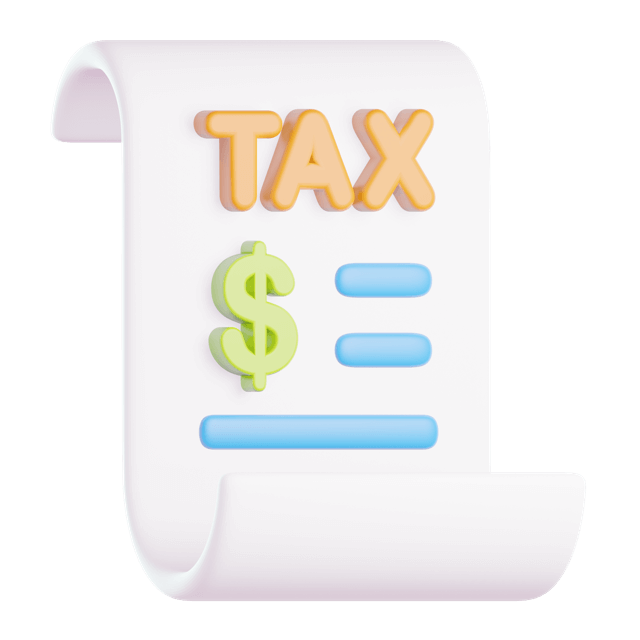
tax preparation
Our Tax preparation service maximizes your deductions, minimizes your liability, and ensures your taxes are filed correctly and on time.
Tax preparation and filing
As a business owner, you must be up to date on all your financial transactions and records when it’s time to file your taxes.
Moreover, it’s essential to file on time each year and make sure all your records are accurate. Your tax liability is calculated on your profits after you’ve offset your allowable expenses.
As well as the IRS, you may have to file taxes with your state. Unsurprisingly, tax offices are often unsympathetic towards mistakes—however unintentional. Making errors can land you with hefty, unpaid tax bills, fines, or even legal consequences.
Therefore, it’s well worth preparing beforehand to make sure that everything is organized and goes smoothly.
Taxation Preparation for different types of business
Figuring out what tax you have to pay and who to pay it to can be complicated. Often, what you have to do when it’s time to file depends on the kind of business you have.
Sole Proprietorships
Typically, Sole Proprietorships pay tax on their profits through their personal tax return. Before you file, make sure that everything is accurate and that you haven’t missed anything. Although it’s not mandatory for Sole Proprietorships, we recommend you have a separate bank account for your business. This gives you a clear separation between your personal and business earnings and makes things much easier to keep track of.
Limited Liability Companies
Limited Liability Companies (LLCs) usually have pass-through taxation. Unless you choose a different tax status, the IRS gives your LLC the designation of a “pass-through entity”. This means that your LLC doesn’t pay taxes on any of the profits it makes. Instead, you pay taxes on them when the LLC passes them through to you. You do this through your personal tax return.
Usually, filing your taxes is simplified because profits are only taxed once. You may also enjoy an additional tax deduction which applies to owners of pass-through entities through the Tax Cuts and Jobs Act (2015).
If you’re a multi-member LLC (meaning you have partners) then things can get a little more complicated. Each member is taxed on their “distributive share” of the profits. Members can have unequal shares, depending on their role in the business. Furthermore, they’ll be taxed even if they haven’t received their share.
Although your LLC doesn’t pay taxes itself, it still has to file these tax forms.
- Form 1065: which is used to outline the financial state of your LLC and the income it’s passing through to you
- Schedule K-1: a federal tax document used to report income for a business entity’s partners or shareholders
S Corps
S Corps are the most popular choice for small businesses wanting to set up a corporation. Often, this is because they enjoy tax advantages that are similar to LLCs. This means that your S Corporation is designated as a pass-through entity. So, while it must report on the profits it makes, these all go to you. Next, you deal with them through your personal tax return.
However, S Corps give you more flexibility than an LLC. For example, you can pay yourself and the other owners a salary which will be dealt with through employment taxes. Also, you can use other methods of distributing benefits, like bonuses, vehicle allowances, and medical plans that can reduce your overall tax bill.
Your S Corp will still need to return tax forms.
- Form 8832: to decide how your S Corp is classifying itself for tax reasons
- Form 1120S: for S Corps to avoid double taxation
- Form 1120-A: an IRS form for your corporation to work out its tax liability
C Corps
If you have a C Corp, things can get more complicated when it’s time to file tax returns. In this case, you’ll need to get to grips with double taxation. That means that your C Corp pays tax on its profits, and you pay taxes on your income from the C Corp. So your personal salary needs to be factored into your tax return, and your C Corp must work out its own liabilities.
If you have a C Corp, you’ll need expert advice to prepare your tax returns and keep track of your financial accounting. While this can be complicated and can cost you more in tax, the opportunities for growth by having a C Corp are often worth it.
You’ll need to file the following:
- Form 1120: this Corporation Income Tax Return must be filed by all domestic corporations, including the ones going through bankruptcy
- Form 1040: an individual tax return for you to report all your earnings from your C Corp
Before you file your taxes
Unless you’re experienced in business taxation, you’ll need to spend time learning about what forms you need to submit and what math you need to do.
The type of tax you pay depends on where your business is and what it does. Whereas, the amount of tax you pay is calculated on your profit and loss, offset against your assets and their depreciation.
Unless you’re 100% sure of what all this is, it pays to get expert advice.
How IncReg helps you with tax preparation
If you’re researching your taxes or have been doing this yourself, you’ll know that it’s a labor-intensive process. The IRS and state require many forms and you must complete these with 100% accuracy. Failing to do so can leave you with a tax headache that can be costly to resolve.
As a business owner, you’re a skilled and resourceful person. However, this is an area that many entrepreneurs prefer to hand over to an expert. To be 100% sure you’re filing your taxes correctly, you’ll need to spend a lot of time crunching numbers and putting evidence into forms. The effects of missing something can be dire, so careful checking is essential.
IncReg takes the pain and the hassle away from tax preparation and filing. We’ll check that you are fully compliant with your business taxes, give you expert advice, and check that everything is ready for your filing date. What’s more, you’ll be well prepared for all your key filing dates, as we flag these for you so you’ll never miss a thing.
